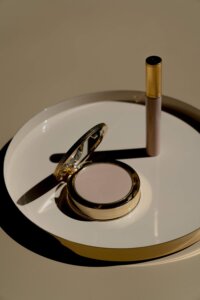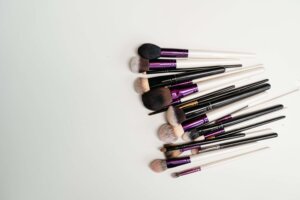How to Prevent It

In the world of beauty, our makeup products are like magical tools that enhance our features and boost our confidence. However, there is a hidden enemy lurking in our cosmetics: bacteria. Makeup products, if not properly handled and maintained, can become breeding grounds for bacteria, posing potential risks to our skin health. In this blog post, we will delve into the realm of bacteria growth in makeup, explore the dangers it can pose, and provide essential tips on how to prevent it, ensuring a safe and healthy beauty routine.
The Beast Within: Understanding Bacteria Growth in Makeup
Makeup products, especially those that come in contact with our skin, provide an ideal environment for bacteria to thrive. The warm and moist conditions inside products like liquid foundations, cream-based products, and even powder cosmetics can promote bacterial growth. Additionally, when we apply these products with brushes or sponges, we introduce bacteria from our skin into the products, further increasing the risk.
The Dangers of Bacterial Contamination
Using makeup products contaminated with bacteria can have detrimental effects on our skin health. Bacterial growth can lead to skin irritations, breakouts, and even infections. Common signs of bacterial contamination include changes in product texture, unusual odors, or discoloration. Furthermore, using contaminated makeup can exacerbate existing skin conditions, such as acne or eczema. To maintain a healthy complexion and prevent potential skin issues, it is crucial to take proactive measures to keep our makeup products bacteria-free.
Preventing the Beauty Beast: Tips to Maintain Bacteria-Free Makeup
1. Cleanliness is Key
Always start with clean hands and a clean face before applying makeup. Wash your hands thoroughly with soap and warm water to remove any bacteria that may be present. Cleanse your face using a gentle cleanser to remove dirt, oil, and bacteria from the skin surface, ensuring a clean canvas for makeup application.
2. Use Clean Tools
Regularly clean and sanitize your makeup brushes, sponges, and other applicators. Bacteria can accumulate on these tools over time, leading to contamination of your products. Wash brushes and sponges with mild soap and warm water, then allow them to dry completely before using them again. Consider investing in antimicrobial brush sprays or wipes for additional disinfection.

3. Check Expiration Dates
Makeup products have expiration dates for a reason. Using expired products increases the risk of bacterial contamination. Check the labels or packaging for the Period After Opening (PAO) symbol, which indicates the recommended period of use after opening. If a product has expired or shows signs of bacterial growth, such as an off smell or color change, it’s time to replace it.
4. Avoid Double-Dipping
Refrain from double-dipping into your makeup products, especially those housed in jars. Using your fingers or a brush directly into the product and then back again introduces bacteria from your skin into the container. Instead, use a clean spatula or a disposable applicator to scoop out the desired amount of product.
5. Store Properly
Proper storage is crucial for preventing bacteria growth in makeup. Keep your products in a cool, dry place away from direct sunlight and humidity. Avoid storing makeup in the bathroom, as the warm, moist environment can accelerate bacterial growth. Additionally, close product lids tightly to minimize air exposure, which can also contribute to contamination.
Conclusion
Understanding the potential for bacteria growth in makeup is essential for maintaining a healthy beauty routine. By following these preventive measures, you can keep the beauty beast at bay and enjoy your cosmetics without risking skin infections or irritations. Remember, cleanliness, regular tool sanitation, checking expiration dates, avoiding double-dipping, and proper storage are the keys to ensuring bacteria-free makeup and preserving the health and beauty of your skin.

